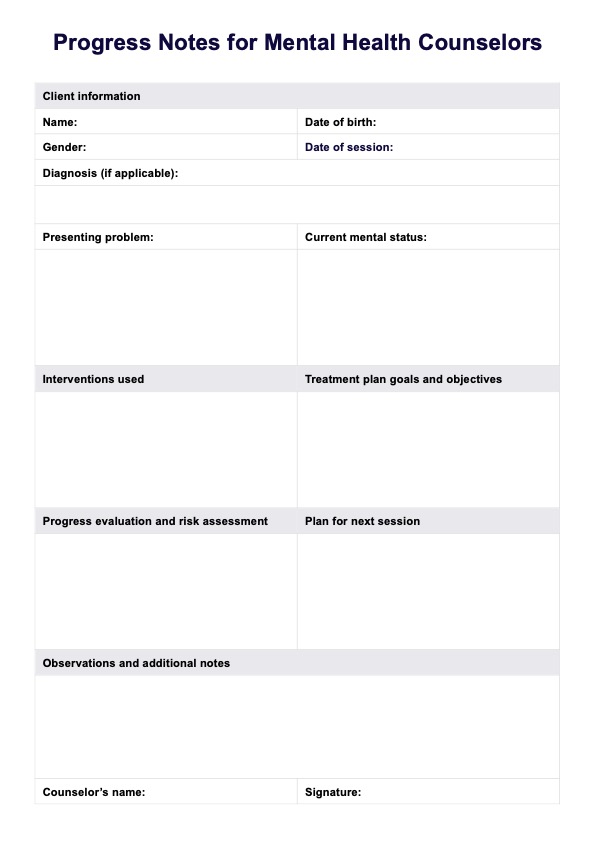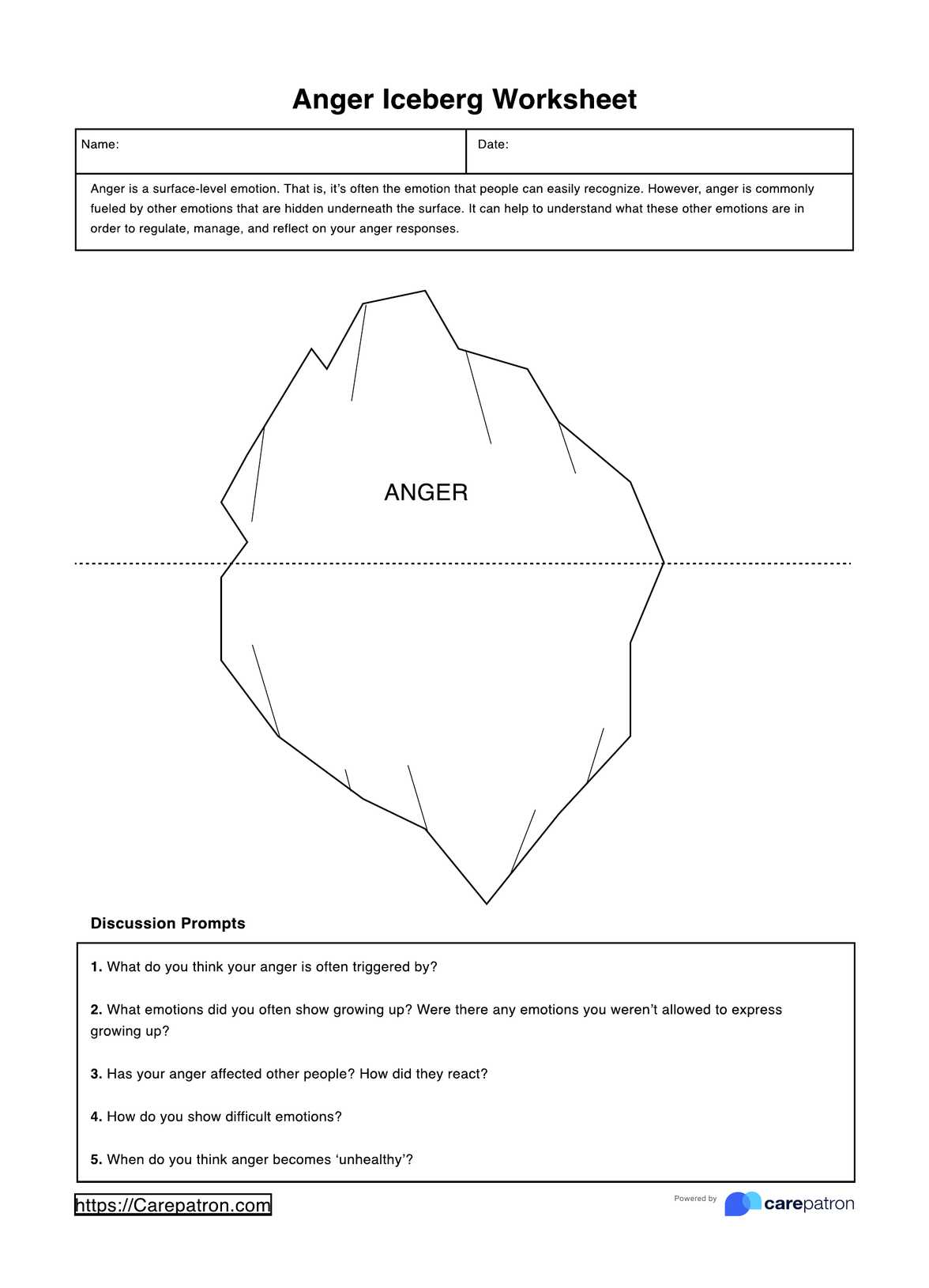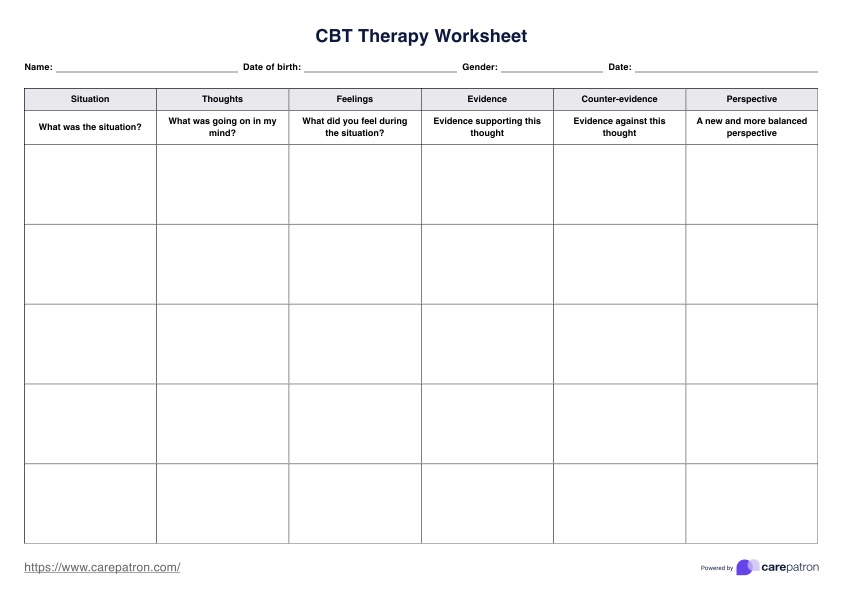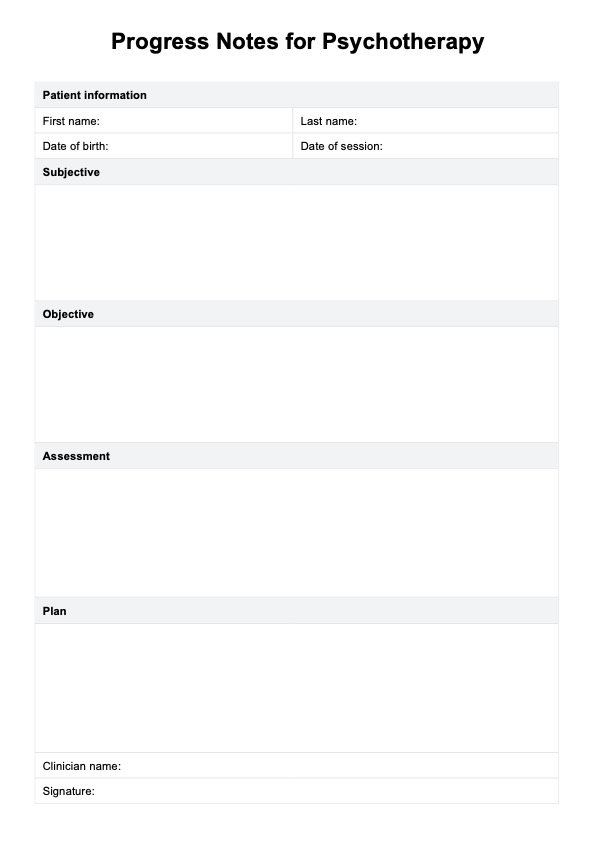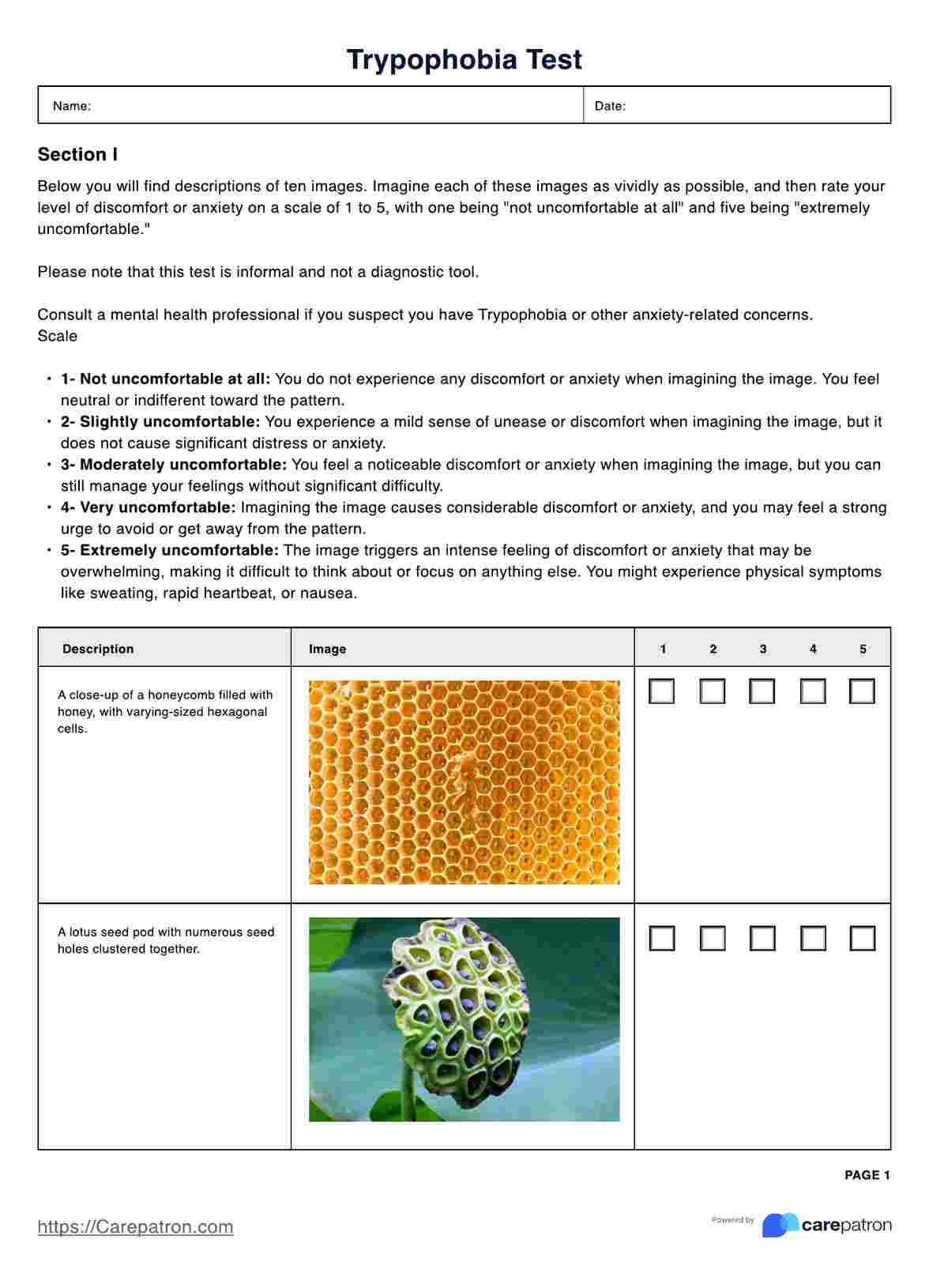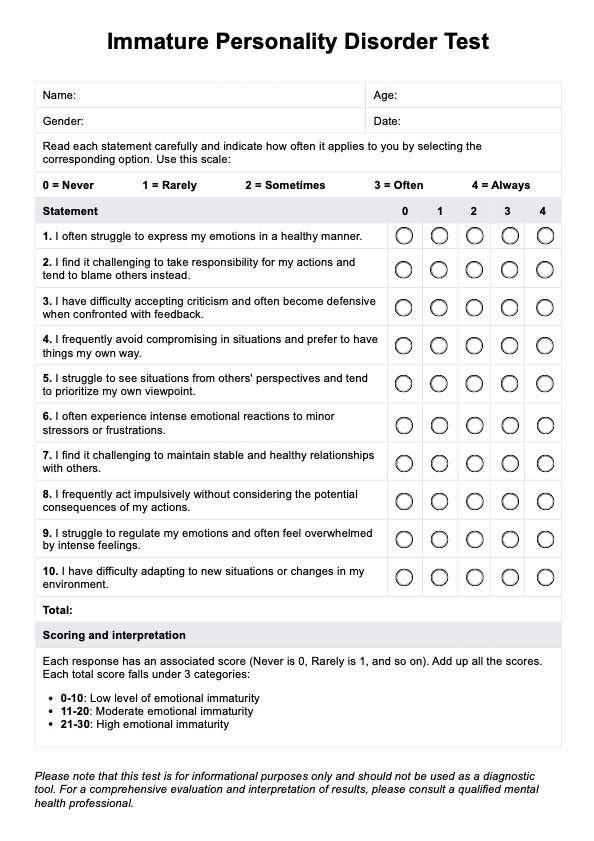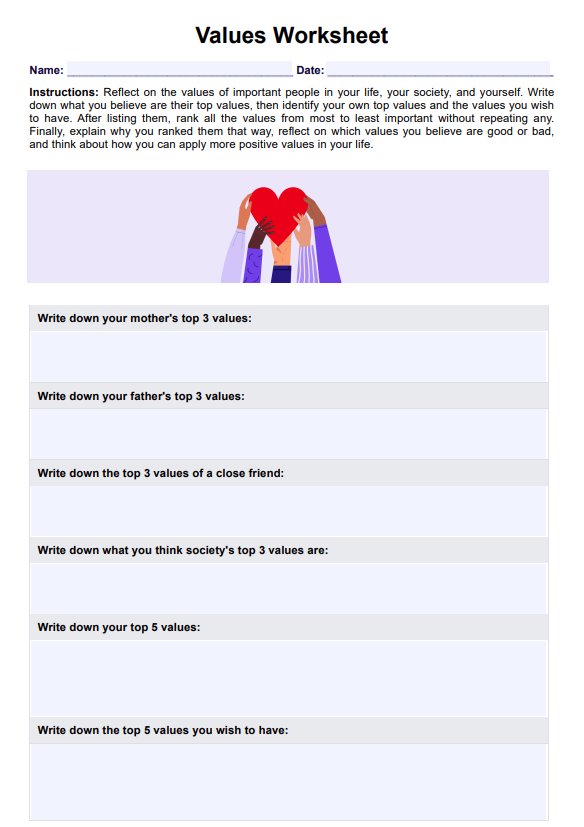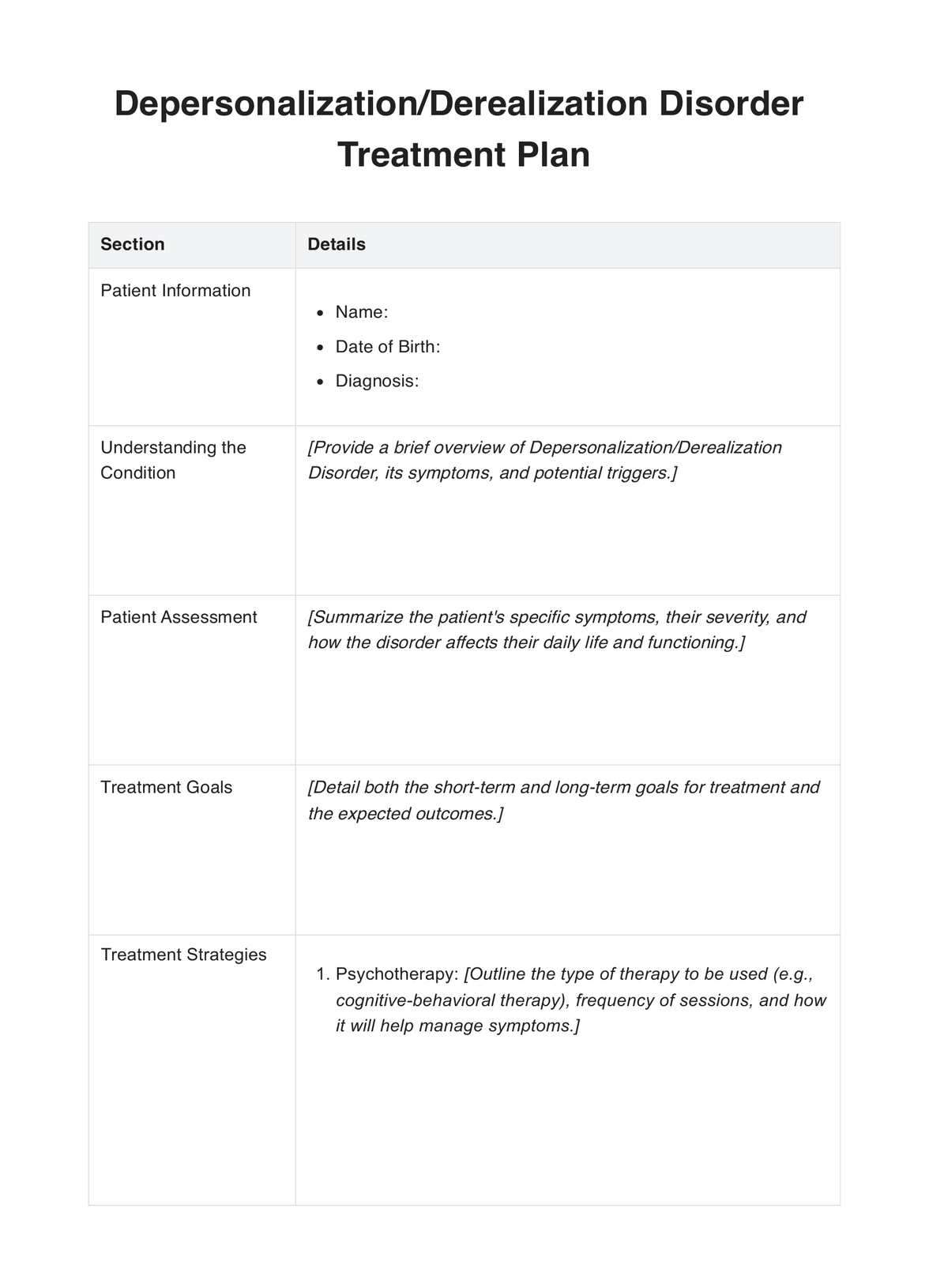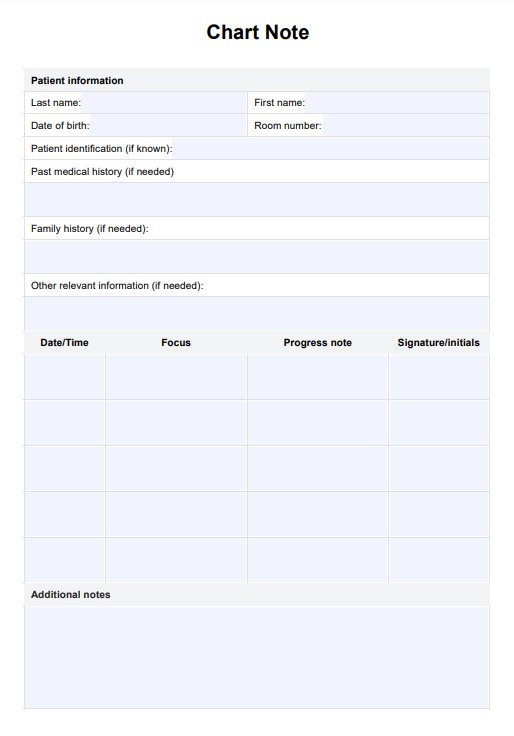Communication Skills Treatment Plan
Explore how a Communication Skills Treatment Plan works. Download a free PDF template to help create effective treatment plans for your patients.


What are communication skills?
Communication skills are the ability to convey thoughts, feelings, and ideas effectively through both verbal and nonverbal means. These skills are essential in all interactions and contribute to success in both personal relationships and professional settings. The combination of verbal communication with nonverbal cues is key to effective communication.
Mastering communication skills is crucial for mental health and strong interpersonal relationships. Effective communication fosters empathy, helps resolve conflicts, and improves understanding. By enhancing communication styles and techniques, individuals can create a supportive environment for personal and relational growth.
Verbal communication skills
Verbal communication involves the exchange of ideas, whether through face-to-face conversations, phone calls, public speaking, interviews, or meetings. Effective verbal communication requires clarity, precision, and an understanding of context. Good communication considers not only the words used but also tone, pacing, and active listening. Clear verbal communication is vital for building strong relationships and maintaining professional connections.
Non-verbal communication
Non-verbal communication includes cues like facial expressions, body language, eye contact, gestures, and micro-expressions. These cues help reinforce verbal messages, provide additional context, and express emotions. Understanding nonverbal communication is essential for effective interactions, as it often reveals feelings or intentions that are not verbally expressed, strengthening communication and relationships.
Communication styles: passive, aggressive, and assertive
Communication styles can greatly impact interactions. Passive communication involves avoiding the expression of personal needs and desires, often leading to frustration and unmet needs. Aggressive communication, on the other hand, is characterized by dominance, intimidation, and even physical aggression, which can damage relationships. Assertive communication is a balanced approach where individuals express themselves clearly and respectfully. This style fosters positive relationships, encourages active listening, and supports effective problem-solving.
Communication Skills Treatment Plan Template
Communication Skills Treatment Plan Example
Enhancing communication skills with a treatment plan
Improving communication skills involves self-awareness and the practice of various techniques. Communication skills treatment plans are designed to address specific challenges by setting clear objectives and providing structured approaches. Your work as a health professional helps individuals identify barriers to effective communication and develop strategies to overcome them.
Therapy sessions focus on improving both verbal and nonverbal communication skills through techniques such as feedback, active listening, and understanding cultural differences. These treatment plans provide ongoing support, helping individuals practice and refine their skills, leading to personal growth and stronger, more effective relationships.
How does this Communication Skills Treatment Plan Template work?
Incorporating this template into your practice is simple. To do so, follow these steps:
Step 1: Download the template
Download the Communication Skills Treatment Plan Template to begin using it. This tool is designed for therapists and other health professionals to guide patients in improving their communication skills.
Step 2: Assess communication skills
Complete the assessment to identify strengths and areas for improvement in communication, including verbal and nonverbal cues. Additionally, be sure to document any relevant symptoms and the patient's diagnosis related to their communication skills.
Step 3: Set treatment goals
Based on the assessment, collaborate with the patient to set clear, achievable objectives for improving specific skills, such as active listening, assertive body language, and problem-solving. This template includes designated spaces to outline both long-term and short-term goals.
Step 4: Formulate interventions
Formulate interventions by outlining strategies to help the patient practice skills such as empathy, feedback, and coping strategies, ensuring the plan is tailored to their unique needs. If applicable and needed, consider prescribing medication to your client.
Step 5: Monitor progress
Review and update the treatment plan regularly to track progress and assess improvements in interpersonal relationships. Adjust objectives as needed to ensure continued development. Effective communication within therapy strengthens the therapeutic alliance, as patients who feel comfortable sharing their ideas and actively contributing to their treatment plans are more likely to experience positive clinical outcomes and greater participation in the process.
Remember that Treatment plans can be complicated if the individual has some factors they need to work on within themselves. Issues such as depression, along with other concerns, can often make the process difficult and may elicit conflict behavior. Communicating the importance of the treatment plan can help the individual find the words to express how they are feeling and improve the patient's outcomes.
Understanding when clients need to improve communication
There may be a range of reasons why a patient may come to you for support in their mental health journey to improve their communication. Here are a few examples:
Misunderstandings
If a patient misunderstands what is being said during a session or notes that their family or friends are having difficulty understanding them, it could be time to improve communication skills.
Lack of clarity
Individuals having difficulty with communication may find it difficult to be clear and concise. When someone cannot communicate how they're feeling to others, or it just doesn't make sense to them or the individual, it could be time to think about communication skills.
Struggles in relationships
You also may find that individuals who come to mental health professionals like you seek support for differing issues. During your sessions, you may hear that they struggle with communication in their relationships with others. Consider a treatment plan incorporating this aspect may be a good idea.
The benefits of improving communication skills
There are various benefits of improving communication skills for individuals who are having difficulty managing positive relationships and maintaining positive self-care as well. Here are some of them:
Enhancing social skills
First and foremost, enhancing communication skills can support overall social skills. Individuals struggling socially may find their current communication techniques not working well. Good communication is the foundation of healthy relationships. Improved interpersonal skills can foster healthy relationships as well as future positive connections.
Enhancing communication skills also supports conflict resolution within relationships. Individuals who can freely express their opinions, thoughts, and advice respectfully are likelier to foster positive relationships with others.
Improving self-care habits
Another great benefit of improving communication skills is being able to recognize when it's time to disconnect from others and participate in treatment strategies.
Communicating needs, wants, and opinions effectively can be complex for a passive person with an aggressive communication style. By improving their communication techniques, individuals may be able to manage their stress levels, resolve conflict more quickly, set better boundaries, and even seek support. These behaviors can support self-care habits that can be implemented into their lifestyle.
Enhancing self-esteem
Another benefit of improving communication may be an enhancement of self-esteem. Individuals working on their skills may feel more confident in their ability to engage with others in a meaningful conversation clearly with others. This can empower them to overcome new challenges and work towards their treatment plan and goals.
Commonly asked questions
Communication skills are essential for building strong relationships, resolving conflicts, and succeeding in both personal and professional settings.
You can improve your communication skills by practicing active listening, seeking feedback, engaging in therapy or coaching, and focusing on both verbal and nonverbal cues.
Common barriers to communication include language differences, lack of clarity, emotional barriers, cultural differences, and distractions that hinder effective message delivery.


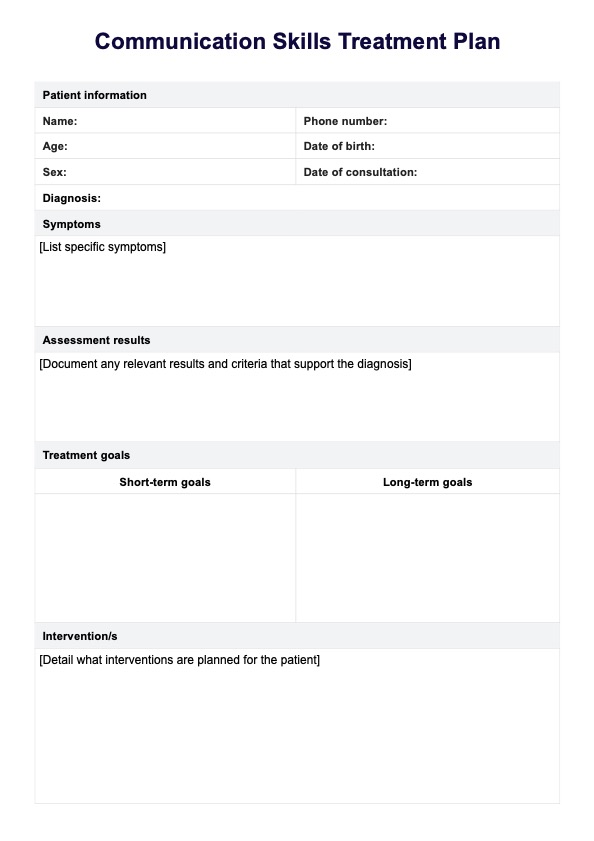
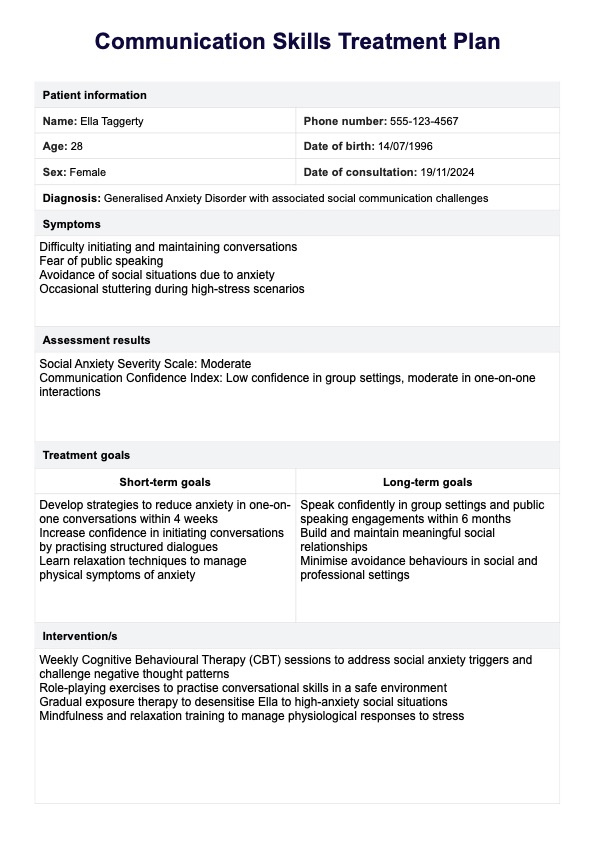

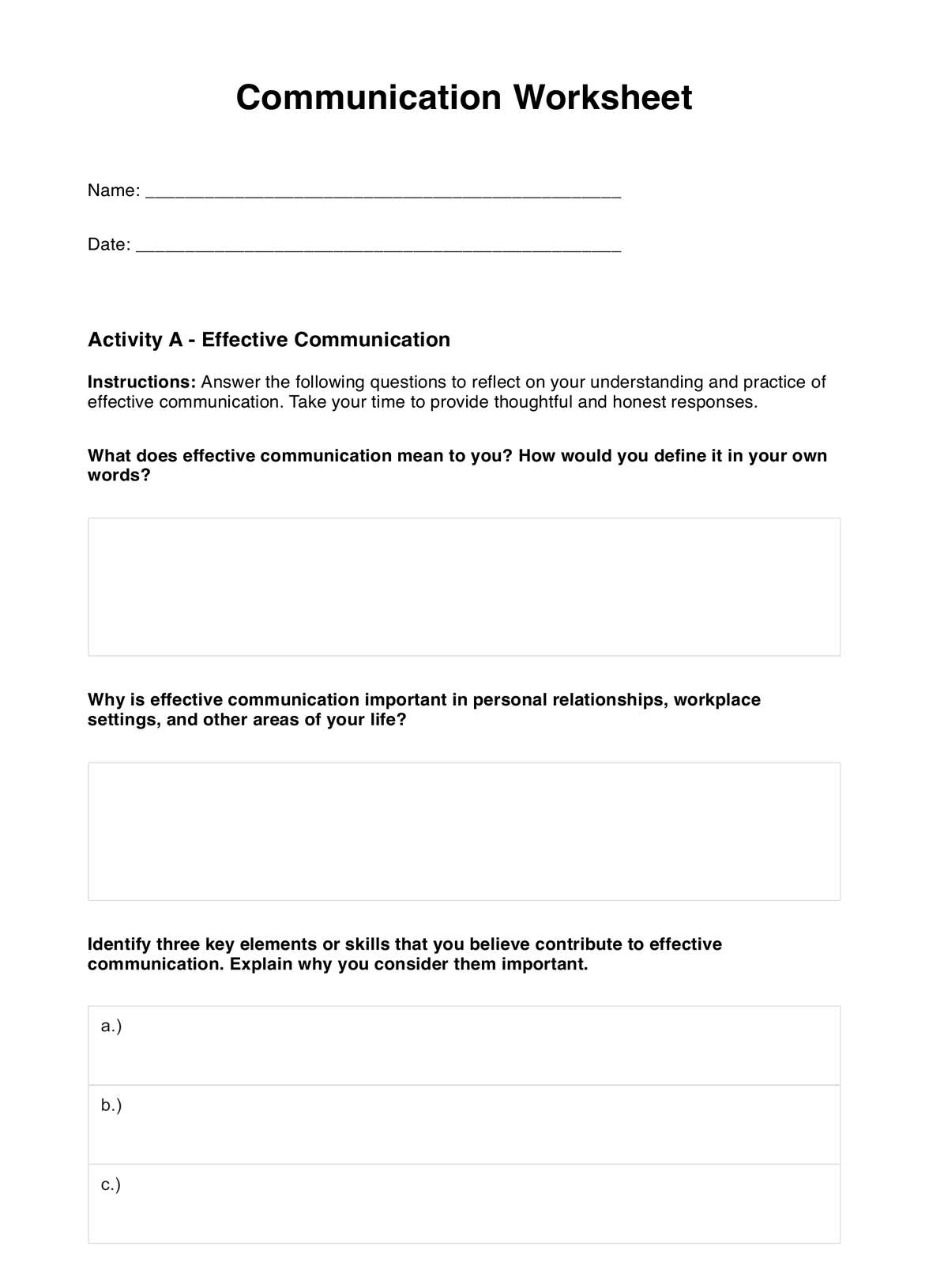
















-template.jpg)



















































































